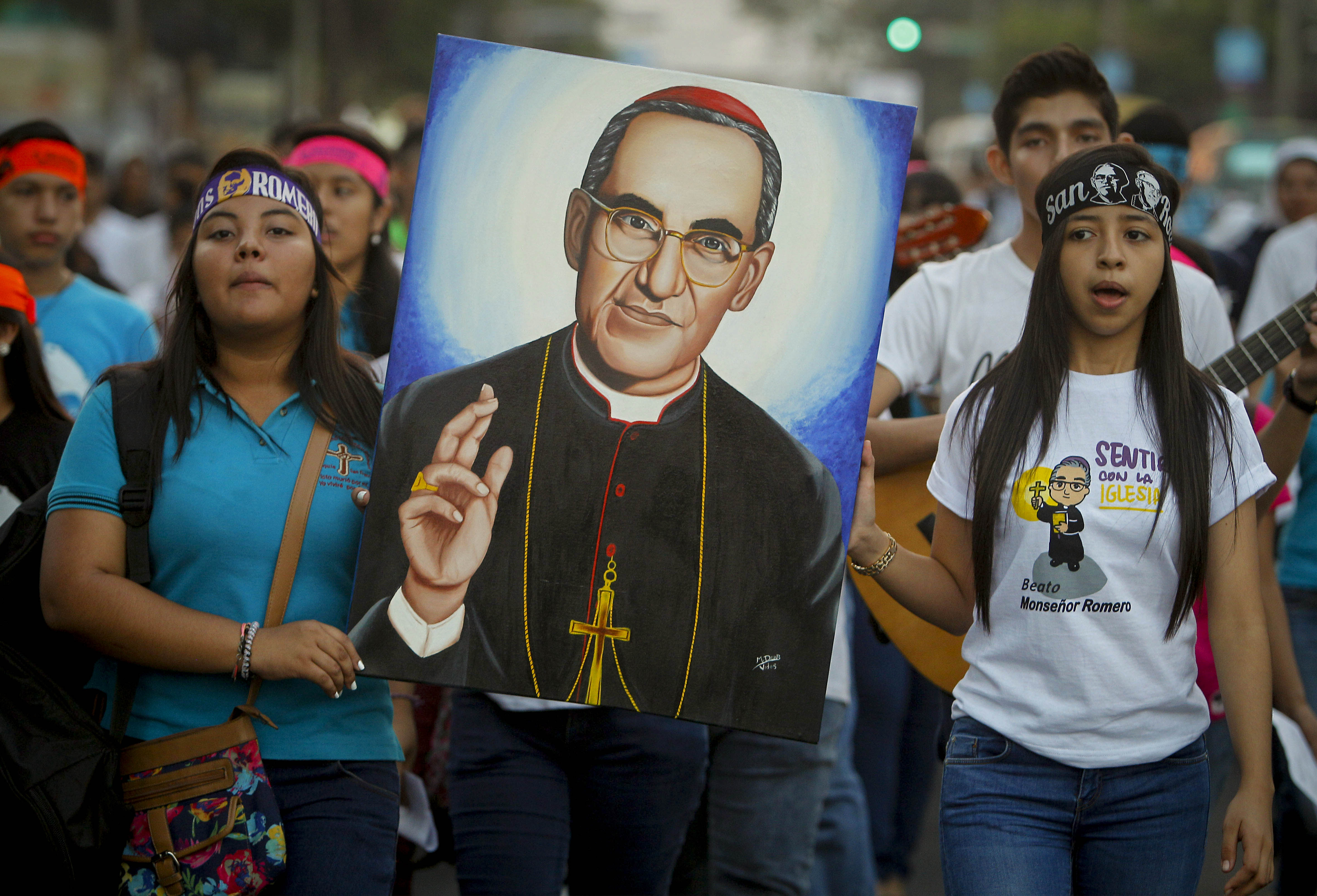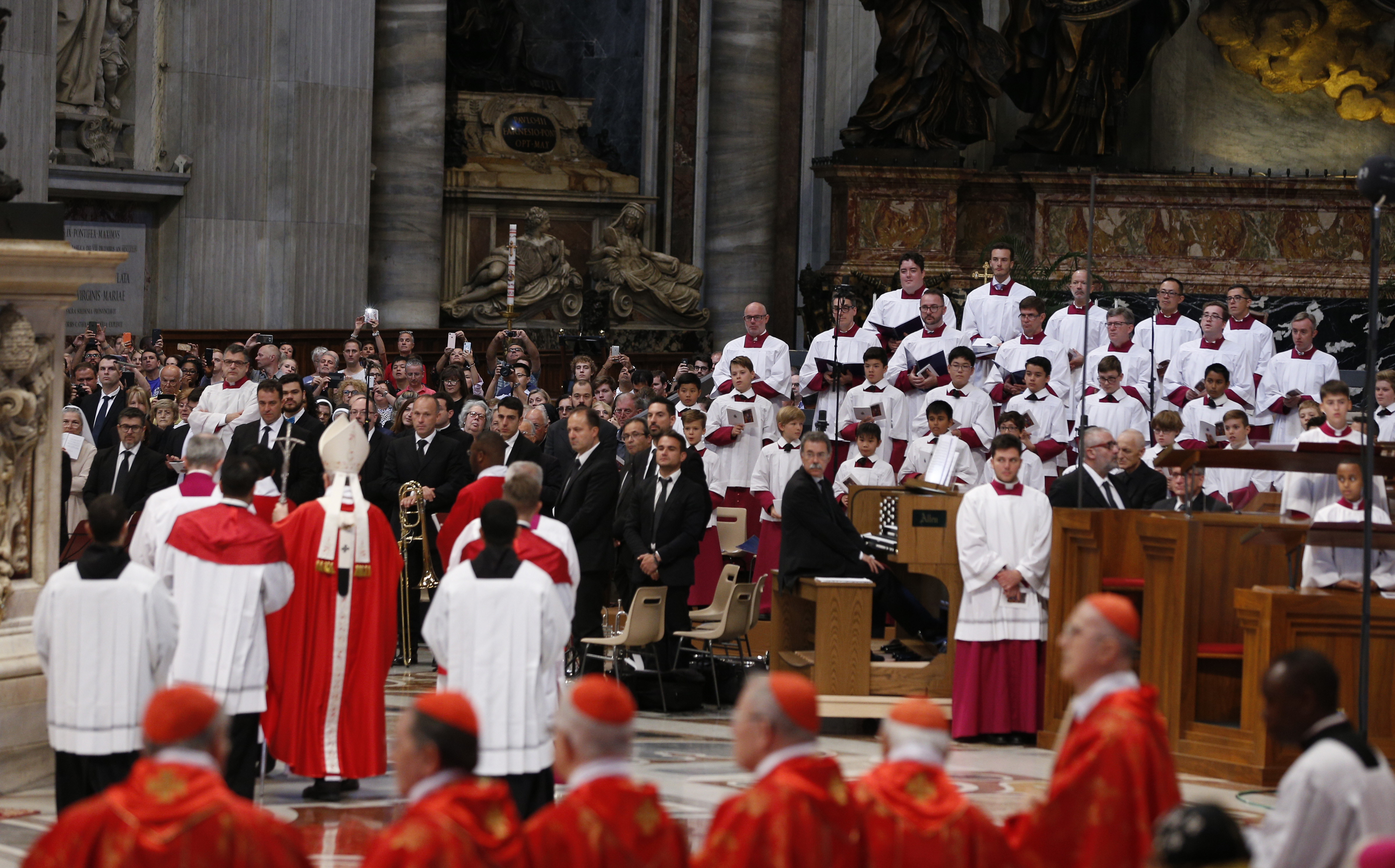Pope Francis used Pentecost Sunday, a celebration of the outpouring of the Holy Spirit and birthday of the Church, to name fourteen new cardinals who will receive their red hats at a Vatican ceremony on 29 June.
Continuing what has become the custom under this papacy, Francis announced he had chosen new “Princes of the Church” from far flung, dangerous parts of the world – bishops renowned for their hands-on, pastorally focussed ministry.
Among those selected to the highest rank of clerical privilege is Archbishop Konrad Krajewski, 54, the papal almoner, a bishop who has given his flat over to a Syrian refugee family and walks the streets of Rome helping the homeless.
"The countries of provenance express the universality of the Church, which continues to announce the merciful love of God to all men on Earth,” the Pope told a crowd gathered in St Peter's Square on Sunday 20 May.
Naming cardinals is also the closest thing a Pope has to succession planning, and Francis has now named 47 per cent of those who can vote in a conclave.
After June, the Pope will have selected 59 out of the 125 cardinals under the age of 80 and eligible to elect his successor, with 47 created by Benedict XVI and 19 by John Paul II.
Francis has consistently chosen cardinals from unexpected places, seeking to further internationalise an Italian-heavy college of electors while upending the old, unwritten system of ecclesiastical power where bishops of particular dioceses would automatically be given a red hat.
His appointments reflect where he sees the Church’s most important pastoral work happening, and a desire to operate a “last will be first policy” in appointments. And while cardinals were traditionally known as “Princes of the Church”, under Francis that title has fallen out of favour.
Among his latest batch of cardinals are the Iraqi prelate, Chaldean Patriarch Louis Raphaël I Sako, and Archbishop Joseph Coutts of Karachi, Pakistan, both bishops working on the front line when it comes to persecution of Christians and dialogue with Islam.
The Japanese Archbishop of Osaka, Thomas Manyo, will also get a red hat, another sign of the Pope’s pivot to Asia and his desire to support the Church in the Far East. Francis, who as a teenager dreamt of working as a missionary in Japan, appointed Archbishop Manyo to Osaka in 2014, transferring him from leading the Diocese of Hiroshima.
The latest appointments also include important figures from the Roman Curia. These include Archbishop Luis Ladaria, the Prefect of the Congregation for the Doctrine of the Faith, and Archbishop Giovanni Becciu, who has served as the “sostituto” in the Vatican, a deputy prime minister equivalent.
Archbishop Ladaria who, like the Pope, is a Jesuit took over the doctrinal congregation from Cardinal Gerhard Muller, whom the Pope had an uneasy relationship with and dismissed last year. Under Archbishop Ladaria, the CDF has started to take on a more visible role.
By naming Archbishop Becciu a cardinal it looks likely that the “sostituto” will be transferred to a new role. A trusted aide to the Pope, the Sardinian prelate is an experienced and sure-footed diplomat and administrator who was chosen by Francis as special delegate to the Order of Malta, taking over the duties which would normally have been assigned to the patron, Cardinal Raymond Burke, who technically remains in post. Archbishop Becciu took over the as liaison between the order and the Holy See after the cardinal became involved in a public show down between the knights and the Pope.
Meanwhile, the Pope’s choice of Archbishop Angelo De Donatis, the Vicar General of Rome, is a sign of the deepening trust that Francis has in this no-nonsense, pastorally grounded bishop who recently helped present the new papal document on holiness, “Gaudete et Exsultate.”
Other new cardinals include Archbishop Désiré Tsarahazana of Madagascar, Archbishop Pedro Barreto of Huancayo, Peru, a Jesuit like the Pope, and Bishop António dos Santos Marto of Leiria-Fátima, Portugal home of the important Marian shrines. Francis has visited both Fatima and Peru on his travels over the last few months.
Perhaps the clearest mission statement for the Church the Pope can give through his cardinal appointments is the choice of Archbishop Krajewski.
After appointing him to the role the Pope told him: “You can sell your desk. You don't need it. You need to get out of the Vatican.”
Archbishop Krajewski, or “Don Corrado” as he likes to be known, takes his mission seriously. He brought eight of Rome’s homeless to join Francis for breakfast on his 80th birthday; he oversees the distribution of food to migrants living in makeshift camps in Rome and visits to the elderly, even arranging for the payment of the utility bills of many struggling families.
Each day a Vatican gendarme arrives from the guesthouse where the Pope lives carrying a bundle of letters with requests for help. On the top of some of them Francis will have scribbled a note: “Go and talk to them” perhaps, or “You know what to do.”
The decision to name his almoner as cardinal is Francis’ way of increasing the importance of an ancient position dating back to the thirteenth century. It is also an example of the Pope’s desire for the Church to be a Church for the poor; a field hospital Church which is out in the street helping those on the margins.
The full list of new cardinals
1. His Beatitude, Louis Raphaël I Sako, the Chaldean Catholic Patriarch of Babylon, Iraq, and leader of the Chaldean Church.
2. Archbishop Luis Ladaria, Prefect of the Congregation for the Doctrine of the Faith.
3. Archbishop Angelo De Donatis, Vicar-General of the Diocese of Rome
4. Archishop Giovanni Angelo Becciu, “Sostituto” at the Holy See’s Secretary of State and Special Delegate to the Order of Malta.
5. Archbishop Konrad Krajewski, Papal Almoner
6. Archbishop Joseph Coutts of Karachi, Pakistan
7. Bishop António dos Santos Marto of Leiria-Fátima, Portugal
8. Archbishop Pedro Barreto SJ of Huancayo, Peru
9. Archbishop Desiré Tsarahazana of Toamasina, Madagascar
10. Archbishop Giuseppe Petrocchi of L’Aquila, Italy
11. Archishop Thomas Aquinas Manyo of Osaka, Japan
Three cardinals over the age of 80 and not eligible to vote in a conclave:
12. Archbishop Sergio Obeso Rivera, Emeritus of Xalapa, Mexico
13. Archbishop Toribio Ticona Porco, Prelate Emeritus of Corocoro, Bolivia
14. Fr Aquilino Bocos Merino, former Superior General of the Claretian missionaries.



 Loading ...
Loading ...